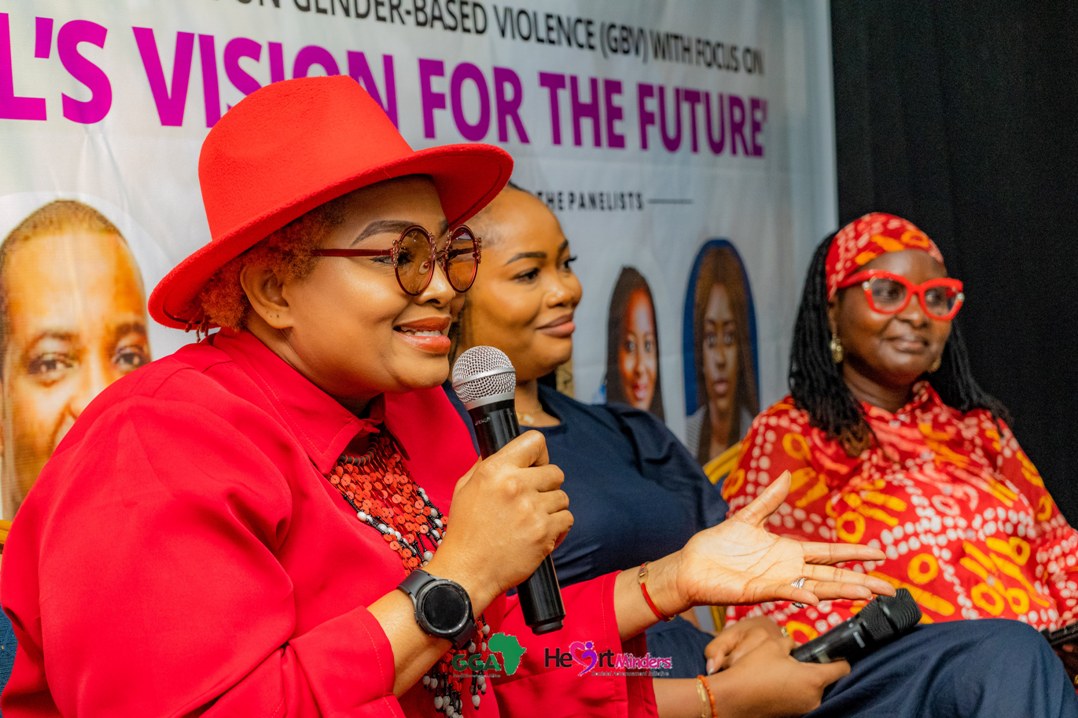Child abuse, sexual exploitation, rape, and child molestation are harrowing realities that continue to plague Nigeria, especially in urban centers like Lagos. With
thousands of children out of school, the vulnerability of these young ones to abuse and exploitation remains alarmingly high. The government, in its duty to protect its citizens, especially children, must rise to the occasion by addressing the root causes of this crisis, chief among them being the lack of access to quality education. It is imperative for the Lagos State Government, in collaboration with the state assembly, judiciary, and other stakeholders, to take urgent and decisive steps to prioritize education and enforce protective measures that will curb child abuse and ensure a safer future for our children.

The Link Between Out-of-School Children and Child Abuse
The link between the number of out-of-school children and the prevalence of child abuse is well established. Children who are not in school are at a higher risk of being subjected to various forms of abuse, including sexual exploitation, trafficking, child labor, and physical violence. They are often found hawking on the streets, working in hazardous conditions, or being exploited for domestic labor, making them easy targets for abusers. According to recent data, Lagos has a significant population of out-of-school children, a situation that demands immediate government intervention.
By denying children access to education, society inadvertently perpetuates a cycle of poverty and vulnerability that exposes them to greater risks of abuse. Education is not just a fundamental right; it is a powerful tool that empowers children, equips them with knowledge, and provides a protective environment that reduces their exposure to harmful practices. If we are to seriously address child abuse in Lagos, then prioritizing education must be at the forefront of government policies.
The Need for Adequate Funding for Education
The Lagos State Government must increase budgetary allocation for education to meet the growing demands of a rapidly expanding population. While the government has taken steps in recent years to improve the education sector, these efforts are not enough to address the systemic challenges that leave many children out of school and vulnerable to abuse.
An increased budget for education will enable the government to:
- Build More Schools: With many existing schools overcrowded and lacking essential facilities, there is an urgent need for the construction of new schools across the state, especially in underdeveloped areas. This will reduce the distance children need to travel to attend school, thus lowering the risk of being exposed to street hawking and other forms of exploitation.
- Provide Free and Compulsory Education: Allocating more funds to ensure that education is not only free but also truly accessible to every child in Lagos
is vital. The government must eliminate hidden costs that deter low-income families from sending their children to school. - Improve Teacher Training and Welfare: Quality education is dependent on well-trained and motivated teachers. The government should invest in continuous
professional development for teachers and improve their working conditions to retain skilled educators who can deliver quality education to our children.
Enforcement of Strict Laws Against Child Hawking
Child hawking remains one of the most visible indicators of child abuse and neglect in Nigeria. Despite existing laws against child labor, enforcement remains weak, with many children seen selling goods on the streets of Lagos, often during school hours. These children are exposed to dangers such as sexual predators, traffickers, and accidents. The government must enact and strictly enforce laws that ban child hawking and other forms of child labor. This includes setting up task forces to ensure compliance and establishing rehabilitation programs for families who rely on child labor for survival. Such programs should provide financial support and vocational training to parents to enable them to generate income without depending on the labor of their children.
Strengthening the Legal Framework to Protect Children
Beyond increasing funding for education and banning child hawking, there is a need for a more robust legal framework that explicitly protects children from abuse and holds perpetrators accountable. The Lagos State House of Assembly should:
- Amend Existing Child Protection Laws: Strengthen the penalties for those found guilty of child abuse, child sexual exploitation, and child labor to serve as a deterrent to others.
- Implement and Monitor Child Rights Laws: Ensure that the provisions of the Child Rights Act, which Lagos has domesticated, are fully implemented and monitored at all levels of government.
- Establish Special Courts for GBV Cases: Create specialized courts to handle cases of gender-based violence, child abuse, and sexual exploitation with speed and efficiency. This will reduce the backlog of cases and provide quicker justice to survivors.
Calling on the Judiciary, Politicians, and Society
The judiciary has a critical role in ensuring that justice is served for victims of child abuse. The courts must act decisively in cases involving children, providing not only legal remedies but also recommending psychological and social support for victims. The legal system should not retraumatize survivors; instead, it should facilitate their healing and reintegration into society.
Politicians and leaders across all levels should also champion the cause of education and child protection. Policies that prioritize the welfare of children and
education must be central to their agenda. Politicians need to use their platforms to advocate for the allocation of more resources to education and to raise awareness
about the dangers of child abuse and exploitation. However, curbing child abuse is not solely the responsibility of the government. Society as a whole has a role to play. Parents, community leaders, civil society organizations, and religious institutions must work together to protect children and promote a culture that values education and condemns abuse. Community members should be encouraged to report cases of abuse and neglect, and there should be adequate support systems in place for those who come forward.
Conclusion: A Call to Action
The future of Lagos lies in the hands of its children, and it is our collective responsibility to protect them from harm and give them the opportunities they need to thrive. The Lagos State Government must prioritize education as a fundamental strategy for curbing child abuse and child sexual exploitation. By increasing funding for education, enforcing laws against child labor, and strengthening the legal framework to protect children, we can create a safer environment where every child has the opportunity to learn, grow, and reach their full potential.
The time for action is now. Let us not wait for another tragedy before we act decisively. We call on the Lagos State Government, the House of Assembly, the judiciary, politicians, and every Nigerian to stand up and take meaningful steps to protect our children. Together, we can ensure that every child in Lagos has access to quality education and a future free from abuse.
Written by
Funke Ijayekunle
Founder and ED
Heartminders Initiative

